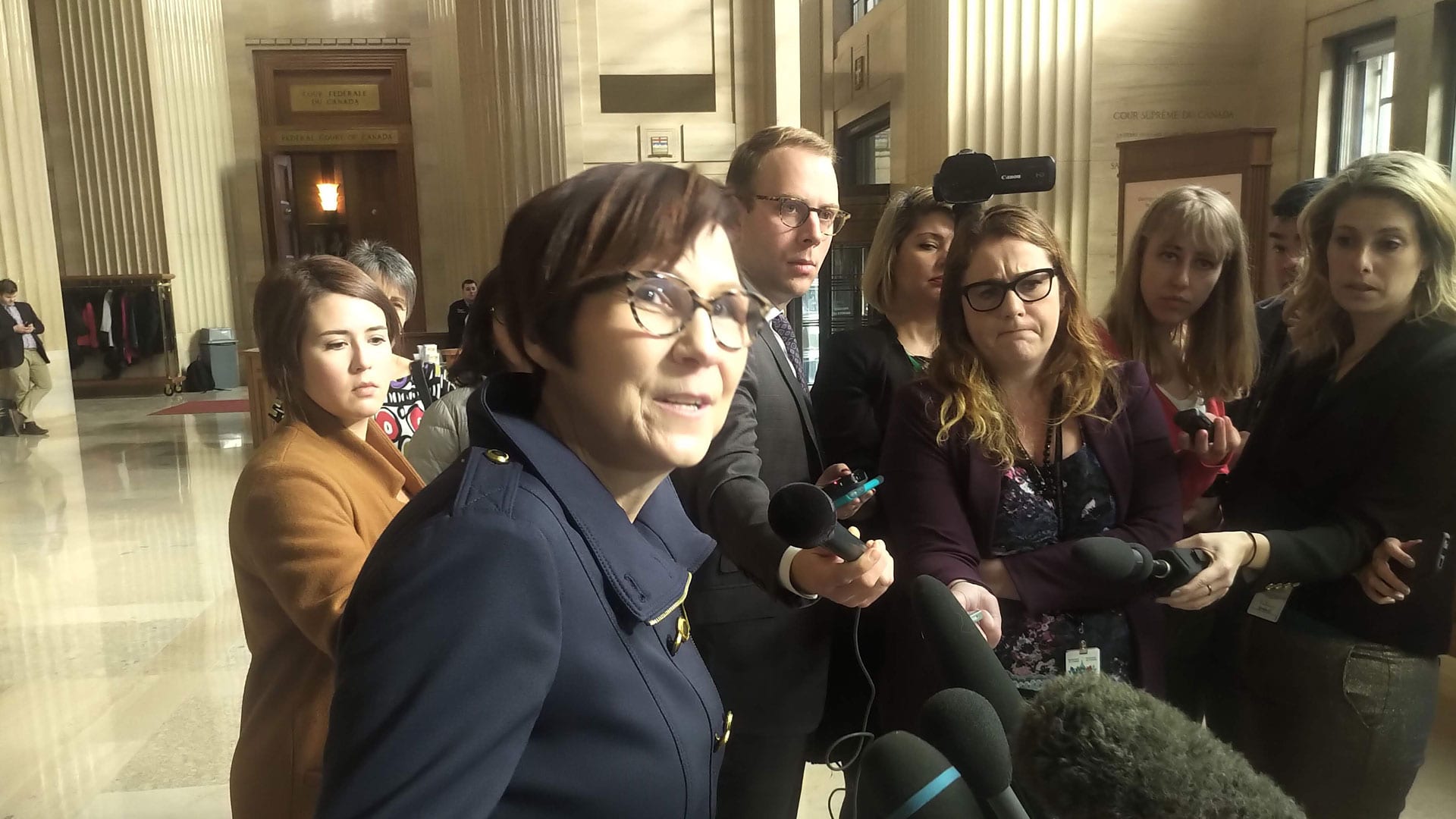
Lawyers say parents who were the subject of a birth alert in B.C. could be eligible for legal action. Photo: Ryan Bushby, Wikimedia Creative Commons.
If birth alerts are illegal and unconstitutional, there is potential for a class action lawsuit says Reidar Mogerman, a Vancouver-based lawyer who focuses on class actions.
“There are very good arguments to say that birth alerts are illegal,” says Mogerman.
An IndigiNews investigation revealed that B.C.’s Attorney General sent a memo to the province’s Ministry of Children and Family Development (MCFD), which advised the ministry that it’s “illegal and unconstitutional” for social workers to share personal information with hospital staff about an expectant parent without that parent’s consent — according to records obtained by IndigiNews.
There are likely two paths to concluding that birth alerts are illegal, says Mogerman.
“One would be a path under the Charter because there’s a good argument that they are systemically discriminating against Indigenous people, and there’s no justification for that,” Mogerman says.
“There are probably also arguments about whether they violate privacy legislation — the collection and dissemination of personal information and how that can be done.”
‘The question of compensation is always a backward looking one,’ – Blackstock
We should “encourage people to get [compensation] when there’s been an injustice,” says Cindy Blackstock, though she doesn’t know how easy it would be in this circumstance.
Blackstock is a professor in the School of Social Work at McGill University, a member of the Gitxsan First Nation, and the executive director of the First Nations Child and Family Caring Society.

She took the federal government to the Canadian Human Rights Tribunal for discriminating against Indigenous children “by providing less services and driving them into care,” and she continues to demand the government compensate for its mistakes.
“The question of compensation is always a backward looking one, where the harm is already done and no amount of compensation will ever recognize what’s done to people,” says Blackstock.
“Often victims are left having to fight with the very groups who victimized them, often knowingly, to be able to get some measure of justice in the form of compensation.”
The stats, the attorney general’s opinion, and the timing matters, says lawyer
It doesn’t take a lawyer to see that birth alerts are likely illegal, Mogerman says.
“You can see that in the statistics,” he adds.
In B.C., for example, 58 per cent of parents impacted by birth alerts in 2018 were Indigenous, according to MCFD’s data.
“They disproportionately, without a rational foundation, impact Indigenous people. And in our legal system, if that is true, then that is likely illegal,” says Mogerman.
He adds that if MCFD’s records accurately reflect the conclusion reached by B.C.’s Attorney General’s office — that birth alerts are illegal and unconstitutional — “that would lend significant weight to any argument that they were illegal.”
Read More:
B.C. ministry warned birth alerts ‘illegal and unconstitutional’ months before banning them
The fact that the government flagged birth alerts as illegal months before banning them is also important, he says. According to MCFD’s records, the Attorney General’s memo was sent four months before the ministry formally put a stop to birth alerts.
“If the government had concluded that the alerts were unconstitutional, but continued to issue alerts, that is a significant fact in a potential lawsuit.”
When IndigiNews asked B.C.’s Attorney General David Eby, also an award-winning human rights lawyer, for an interview to discuss his opinion on birth alerts, we received a letter from a lawyer in response — requesting that we refrain from publishing.
It’s also important to note that a birth alert is an “exercise of discretion,” Mogerman says.
“And an exercise of discretion has to have a source in a statute. The source has to be lawful, and if it violates the Constitution it’s not going to be lawful, but it could also be unlawful because the statute doesn’t allow it.”
In B.C., that statute would be the Child, Family and Community Service Act (CFCSA).
What might families do with this information?
As a first step for parents interested in getting legal representation, Mogerman suggests contacting “a credible class action lawyer.”
“Or they could contact someone like Mary Ellen Turpel-Lafond… because she could guide them as to where they might go.”
He says that if someone who feels they were “wronged by an alert” came to him with their case, he would “start a class action.”
“I think that there is a significant litigation risk for the government, because people like me would gladly act for whom the alert was issued and for whom it impacted their lives,” he says.
There are just a handful of law firms in B.C. that do class action law “with some regularity,” says Mat Good. Like Mogerman, Good is a Vancouver-based lawyer who says he is “highly experienced with class action litigation.” He acts on behalf of injured parties, rather than for businesses or governments defending themselves against class actions.
Both Good and Mogerman recognize there may be barriers for folks interested in pursuing legal damages. For starters, people may be concerned that they can’t afford a lawyer, but there are no upfront costs with class actions, Mogerman says.
“Lawyers like me act on a contingency fee basis. If we think there’s a real case that’s worth pursuing, we’re not going to be charging them an hourly rate as we go forward. We will recover [costs] if and when we succeed.”
People may also be worried about having to tell their story over and over, and retraumatized in the process, he says.
“One of the great advantages to a class action is you need one person who’s going to be the representative plaintiff, and that person is going to take the lead for everyone. The other class members don’t have to be involved in the lawsuit with the same level of intimacy,” he says.
“They might, down the track, have to participate in order to tell their stories to claim compensation if you’re successful, but they’re not the ones who would get examined by the government lawyers.”
What about parents who don’t know that they were subject to a birth alert?
Many families may not know that social workers shared their personal information with hospital staff without their consent.
This is especially true for families whose children were not subsequently apprehended or taken by social workers, after being subject to a birth alert, says Good.
“I suspect there is a probably not insubstantial group of people who, at least until the press coverage, wouldn’t even think to know that they had been targeted like this,” Good says.
Class actions can be good tools for getting someone to disclose this kind of information, according to Good.
“There are certain obligations on the defendants — so in this case, the government — in the context of a class proceeding to provide relevant information,” he says. “MCFD obviously knows which names were on its list.”
If a class action was certified or given the green light, Good says “it is likely that MCFD would have to provide that information or at least facilitate notice of the proceedings to affected people.”
This is part of a series about the legality of #BirthAlerts and the implications for families. If you have a story to share about your own lived experience, email [email protected].










